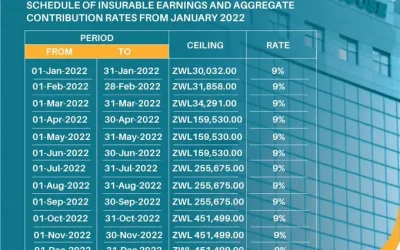What is an imported Service?
Section 2 of the VAT Act provides a definition of an imported service.
An imported service is a service made by a supplier who is resident outside Zimbabwe or carries on business outside Zimbabwe to a resident of Zimbabwe.
The notion of what constitutes a supply of imported services has been extended to include services supplied to locals by all non-resident service providers.
Examples of imported service include, consultancy and information technology software. Vast companies use accounting software from abroad, eg Pinnacle, QuickBooks, Automate Evolve, ZOHO. Consultations on these accounting services constitute imported service.
The Finance Act amended the definition of imported services with effect from 01 January 2019 and now applies to all importers. The implication is that any person who imports a service and consumes it Zimbabwe is now liable for VAT at the rate of 15% irrespective of whether the service was used to produce taxable supplies or not.
Accounting for VAT on imported Service.
With effect from 01 January 2019, VAT at a rate of 15% is accounted as Output Tax, should be declared on the VAT return using the invoice at the spot rate. The rule to pay the tax at the currency of trade should be observed, thus Section 4A of the Finance Act, however, he imported VAT may be paid in local currency.
Claiming Input Tax on Imported Service.
Tax payer is able to claim VAT on imported service, the following month after accounting for imported service. The rule to claim back is to account it as output tax first, then claim back the following month after accounting for it.
Implication of VAT on imported Service on business.
The idea of accounting for Output Tax on imported service this month, and then claiming it as Input Tax the following month does not make sense at all, however for the sake of compliance, businesses have to comply.
Time value of money, by accounting output tax on imported service, businesses are disrupting and allocating cash to a non productive tax, which was not collected on behalf of the government. The funds should have been used for growth in the company which will in turn improve the growth of the economy.
Complex conditions for claiming VAT refunds pose additional challenges, requiring detailed records and stringent documentation to reclaim VIS successfully.


